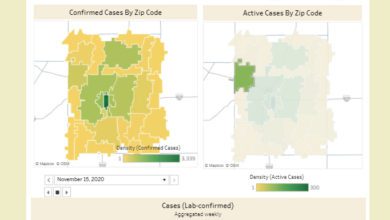What do you believe the role and responsibility of a school board member is?

Out-of-Township (Vote for 1)
Patrick MacKay: I really like this blurb from the ISBE, the school board “provides local citizen control over education at a point as close to the parent and child as possible”. One of the most important responsibilities for any school board is to not only appoint a superintendent but evaluate one as well. This means it is the duty of the board hold the superintendent accountable for his or her performance and the achievement of publicly disclosed goals and metrics.
However, at its most basic level, it is the role and responsibility of every board member to make what he or she considers the best decision for the district. It is also the duty of every board member to thoroughly research an issue before making a decision and the explain why he or she made a decision after doing so. Finally, every board member must understand that they are simply a custodian of their seat, and that the impact of their decisions will outlive their term.
Justin Lamb: A board members roll is to work together in the background by setting visions and policies for the district that will help improve the schools. To serve as a representative of the community by maintaining open communication with their constituents. To hire and evaluate the superintendent. To allow the day-to-day operations of the district to be conducted by the administration, teachers and staff.
In-Township (Vote for 2)
Sunny McMurry: A school board member is just one person on a seven person board. The role of the board is one of governance, not management, meaning that the board works from the 30,000 foot view, not in the day-to-day operations. A board member is responsible for making sure that policies compliment the overall goals of the district and provide opportunities for success of all students. A board member works collaboratively with other board members and the superintendent to gain a greater understanding of the needs and successes of the school district. The superintendent is the only employee of the board, so it is also a board’s responsibility to evaluate the superintendent.
On the other hand, the superintendent and district administrators are responsible for the day to day operations of the district. The superintendent is the CEO of the district. The superintendent should collaborate with administrators, teachers and staff in order to make administrative decisions for the district and then share reports and feedback with the Board of Education. The district and building administrators are the experts of their specific fields. They have the responsibility of ensuring the operations of their specific areas are effective and benefit student learning.
Rebecca Richardson: Fundamentally, the role of a school board member is to provide unique insights and talents to the collective body of the school board in order to fully vet and make the best decisions possible about:
∙ approval and oversight of the district’s budget
∙ hiring, supervision and evaluation of the district superintendent
∙ setting the short-, medium- and long-term vision and goals for the district to provide direction that will reflect the values and overall beliefs of the community
∙ providing a portal for community and stakeholder input through open and ample engagement opportunities
∙ managing the contractual negotiations for district employees.
An ideal school board member will:
- understand the difference between vision, assessment and micromanagement
- will respect and honor the talents and insights of all other board members
- will invite various stakeholders and constituents to provide opinions, expertise and input on important matters being considered
- will be an active listener and will listen for understanding rather than simply listening to respond
- will make the needs of ALL students the highest priority for the school district
- will be informed and engaged in reviewing the district’s budget from acceptance through implementation and review of expenditures after the year is completed.
Max McComb: The responsibility of a board member is to govern. The board is at the strategy level, administration is at the operational level, and teachers and staff are at the tactical level–carrying out the most important and essential business of the school district which is teaching our kids. When board members do not understand or refuse to embrace their roles, and start to micromanage and question staff, then trust and communication break down. No one is a perfect board member, everyone has room to grow, but one also has to be willing and open to learn, grow and change and fully understand what “board work” is and what the role is. It is not to question/interfere with the daily operations of the school district. It is to help chart the course of the district.
Laura Lang: The role of a school board member begins with reflecting the values of the community and the constituents by whom you were elected. To do this, a board member must be available and communicate with constituents. Secondly, a board member must work well within the board to ensure that students are receiving an excellent education by staying well informed on current educational topics that may affect them.




